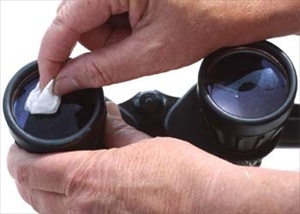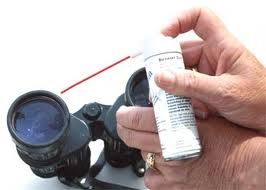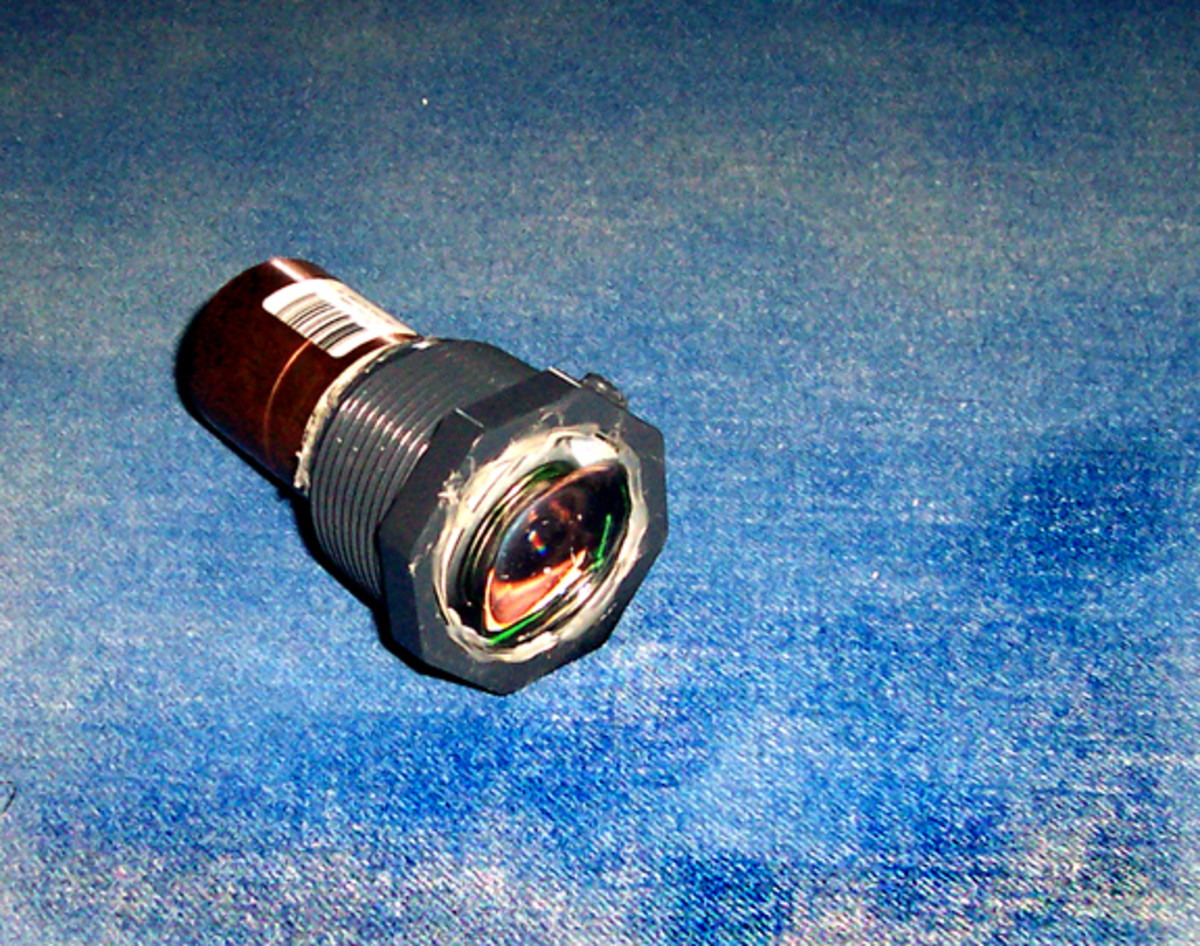Binoculars Are Expensive, Take Care of Them and Maintain Them.
Binocular Lens Cleaning Tissue

Binoculars are one of the most expensive pieces of equipment a birder owns, and they get dirty. It doesn’t matter how careful you are when using them. If you’re using them, they get dirty. You could mistakenly touch the lens when taking off a lens cover leaving an oily smudge. Dust, wind driven dirt, sand, rain, perspiration, and corrosive salt spray will build up on the lenses and on the focusing mechanisms. The buildup of these materials on the lenses will provide neither sharp images nor color detail, and will eventually cause scratches, and even the smallest scratch will distort light as it enters the lens causing a blurred image. Over time multiple scratches will destroy the quality of the binoculars and they will become useless for bird identification.
It doesn’t matter how much your binoculars cost. If you want them to last, you must maintain them, and maintenance of your optics means cleaning them. Always refer to the information provided by the manufacturer for their specific optics and follow there recommendations for cleaning to prevent damage to your binoculars. If you no longer have the manufacturer’s information here are some basic tips that should help to keep your binoculars clean and safe from damage. Remember to always be gentle when cleaning the body and the lenses.
Binocular Cleaning W/Compressed Air

1. Gently wipe off all parts of the binoculars lenses and body including the barrels, focusing mechanism, and eyepiece. Use lens cleaning tissue or a clean soft bristled brush (camel hair or a clean soft paint brush, don’t use a cloth rag because of lint) to remove sand and grit. Be sure to hold the binoculars upside down so dirt falls away from the lens surface. You can use a can of compressed air like those used on computers. Use only short bursts of air to avoid moisture being forced into the binoculars.
2. Use a wet cotton ball to carefully blot up any remaining particles from the lenses taking care not to press to hard or rub across the lenses. The cotton ball should be moistened with water or binocular lens cleaning solution. Do not use household glass or eyeglass cleaning solutions as they could damage the special optical coatings used on binocular lenses.
3. Use a lens cleaning pen or lens cleaning tissue that has been folded into at least three layers (this prevents oil from your fingers from soaking through the tissue) gently wipe the lenses in a circular motion to remove any fingerprints, smudges or stubborn dirt. If there is any oil on the lens, put a drop of lens cleaner on the tissue and repeat the circular wiping motion. Do not use more pressure than necessary and clean the entire lens. If there is a stubborn spot try reversing the motion.
4. Hold the binoculars up to a light to look for dirt on the internal optics by looking into the objective lenses. If dirt is found do not attempt to open binoculars, because the alignment of the binoculars is easily destroyed. Leave this binocular care of internal cleaning to the pros.
5. If binoculars fall into fresh water and they are not waterproof, have them professionally cleaned as soon as possible to avoid rusting. If they were dropped in salt water, rinse them completely with fresh water, seal them in a plastic bag, and get them to a pro service department as quickly as possible. If the binoculars are inexpensive you might as well buy a new pair. The cleaning charge could be more than you paid for the set.
Here are some tips to help keep your binoculars clean and safe
- · Use lens and eyepiece cap to protect lens surfaces when not in use.
- · Store binoculars in a soft case and keep the case clean.
- · Do not apply bug spray or sunscreen near binoculars
- · Don’t carry binoculars by the strap allowing them to swing freely. When in the field keep them around your neck.
- · When jumping a ditch, climbing a slope or getting into a boat, tuck the binoculars inside your jacket or under your arm.
- · When in the car don’t leave binoculars exposed to the sun, especially on hot days. The heat can cause lens coatings to crack and separate from the lenses.
- · Keep binoculars covered in the rain or snow. Even if waterproof this will help to keep water spots off the lenses. If caught in the rain or snow and your binoculars are not waterproof and the inside of the lenses “steam up”, set them in a warm dry place and hopefully they will dry out in a couple days. If not fungus may start growing on the lens coating.
- · Only clean your binoculars when needed, but when you clean them do a through job. The fewer times you clean them the fewer chances there are to accidentally scratch the lenses.
I hope you find these tips helpful. Now get out into the field and have some fun.








